Pauline Boty: The Untold Story of a Pop Art Pioneer
Pauline Boty was one of the pioneers of the 1960s’ Pop Art movement in Britain, of which she was the only acknowledged female member. Her...
Nikolina Konjevod 4 April 2024
Corita Kent was an artist, an educator, and a Roman Catholic nun. She created bold, colorful pop art posters to confront social injustice.
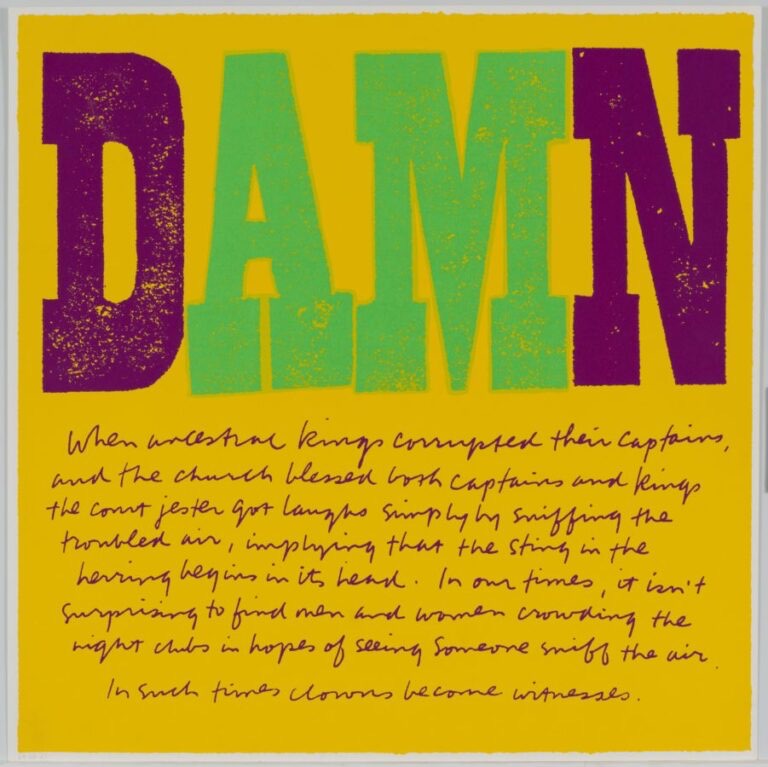
Poverty, racism, and war were all the target of Kent’s exuberant artwork. She felt her liberal ideas were fundamentally part of the Christian message. However, her religion demanded a vow of obedience and her church superiors denounced her work. They took particular exception to a Christmas card called the juiciest tomato of all (1964) in which Kent likens the Virgin Mary to a luscious tomato. They called it ‘scandalous’ and this ongoing rift eventually forced her to leave her religious order.
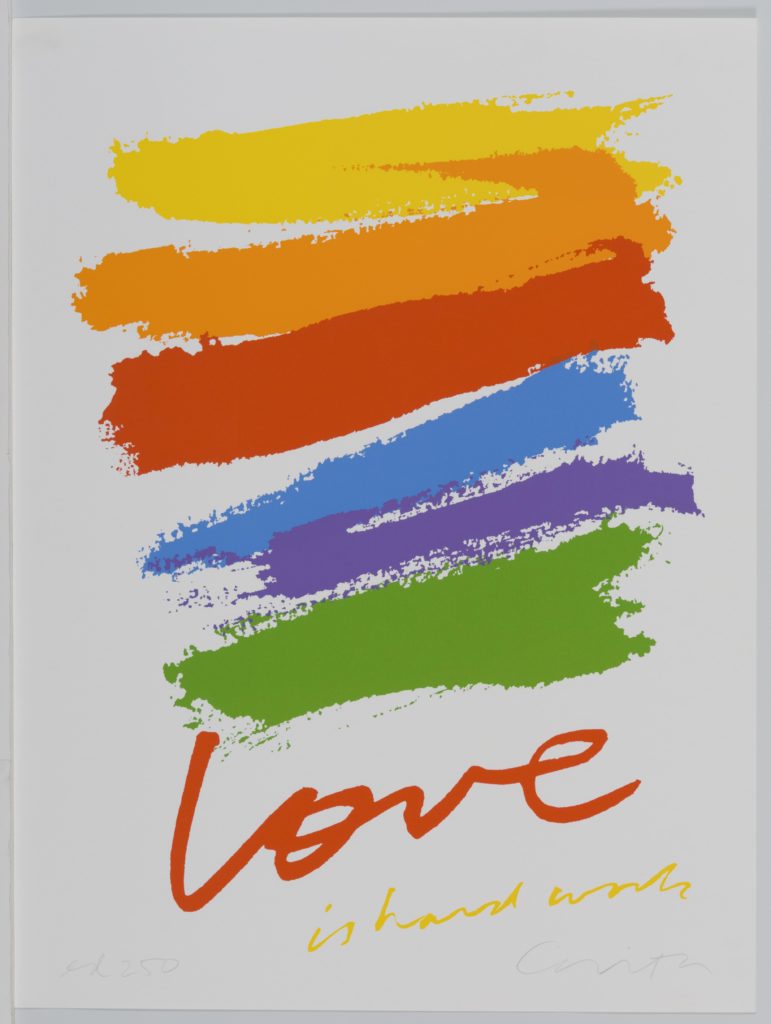































































































Aged 50 Kent left the nunnery and had to start afresh. She couldn’t drive, she couldn’t cook, and had never lived outside of the schedule of religious life. However, for the last 18 years of her life, she produced vast amounts of art. She died aged 67 in 1986, leaving her copyrights and unsold works to the Sisters of the Immaculate Heart of Mary College Community.
Born Frances Kent in November 1918, the fifth of a total of six children, her strongly Catholic family moved from Iowa to Hollywood in 1923. At the age of 18, she entered the Sisters of the Immaculate Heart of Mary order of nuns. From her school days, her artistic talent had been obvious. Encouraged by her fellow sisters, she trained as an art teacher and went on to work in the order’s college, well known for its liberal views, eventually becoming the head of its art department in 1964. Kent soon became very popular because of her unique teaching methods. Her classes gathered prominent avant-garde artists, such as Alfred Hitchcock, Charles & Ray Eames, and John Cage.
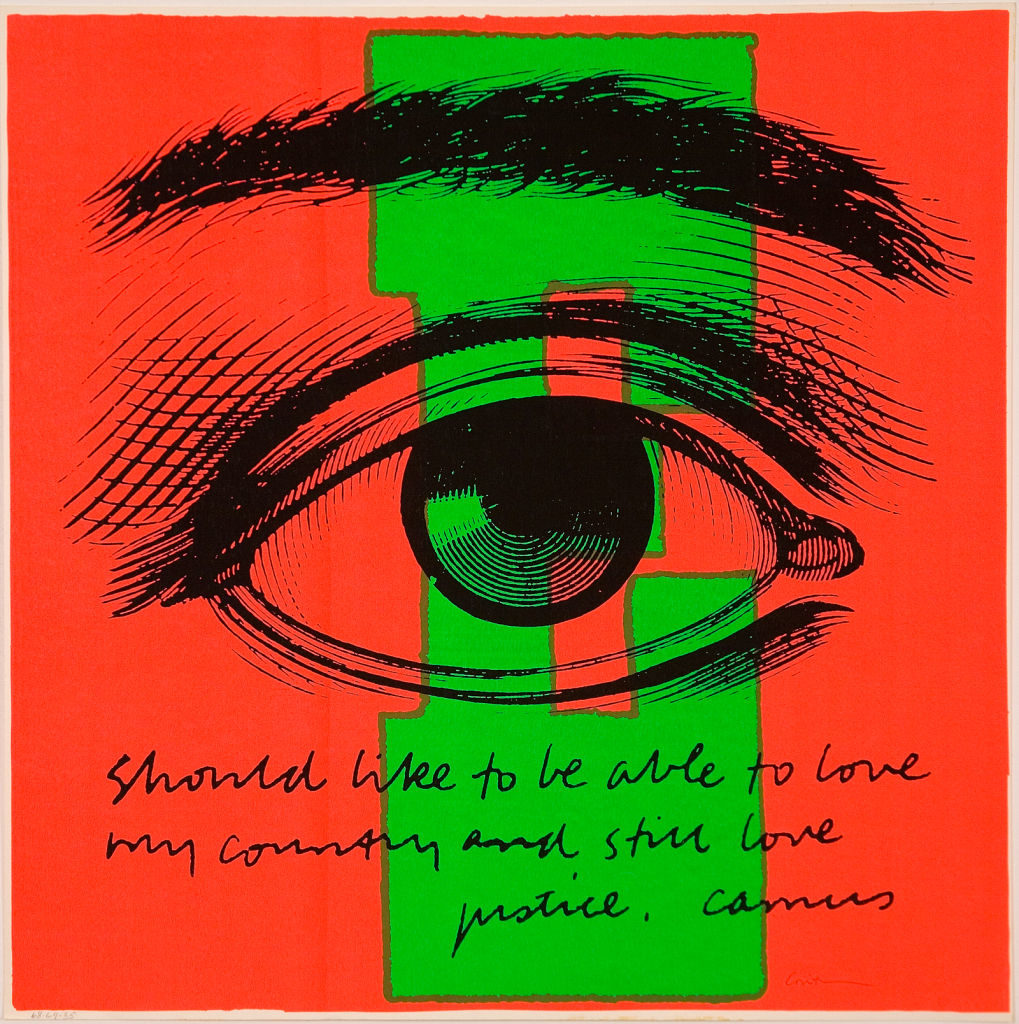































































































A quiet and private person, Kent wore a full nun’s habit, complete with veil and wimple. This monochrome black and white vestment was in stark contrast to the vibrancy of her color-drenched posters. The energy, enthusiasm, and hopefulness of her work drew people in and touched their souls. Dr. Ray Smith, director of The Corita Art Center said:
I’ve never seen an artist that people have connected to so really intensely and enthusiastically.
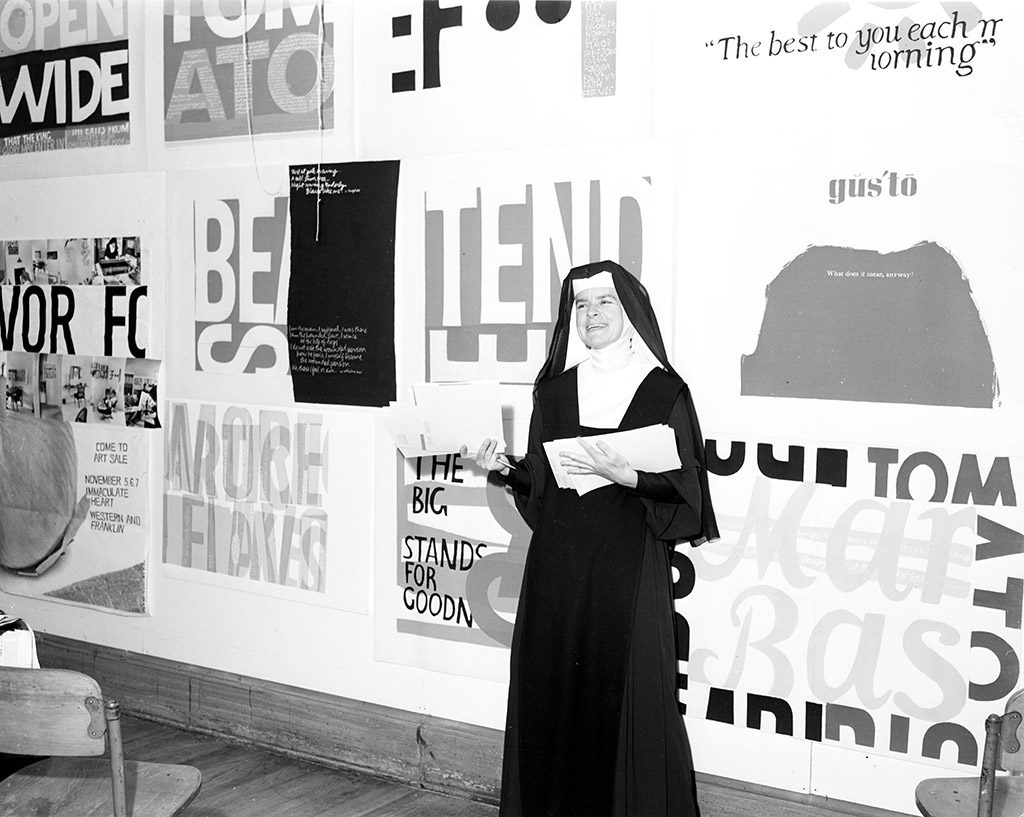































































































Her dynamic screen-printed works mixed song lyrics, advertising slogans, biblical verses, and literary quotes. And although never as celebrated as Andy Warhol, Robert Rauschenberg, or Jasper Johns, critics say her work stands up easily alongside these pop art greats.
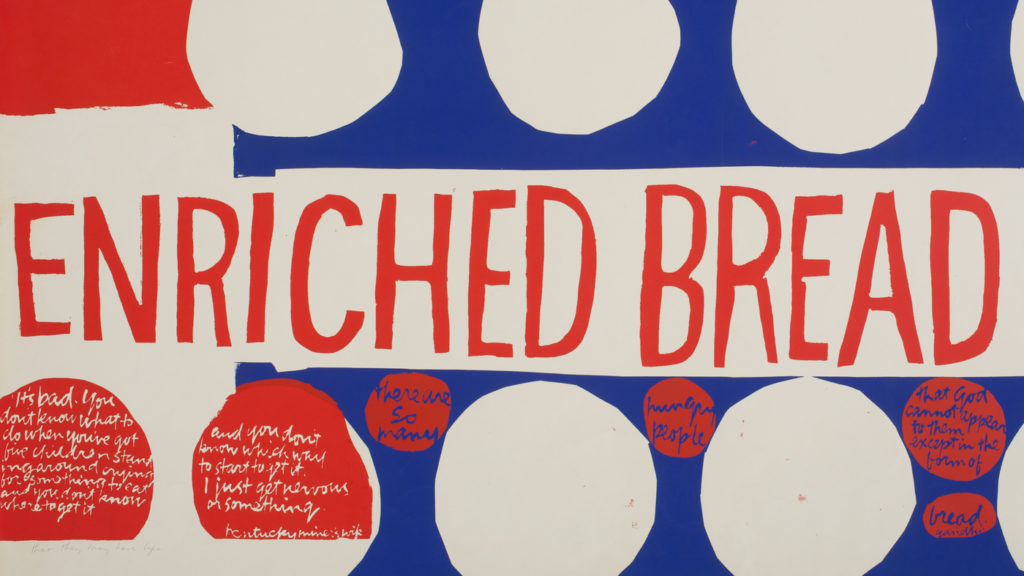































































































Her screens, which could be copied and widely reproduced hark all the way back to the Russian agitprop posters of Mayakovsky. And even today her influence can be seen in the work of Shepard Fairey. His We The People posters were made downloadable as a resource for political protest. A century after her birth, it is clear that Kent was a pop art pioneer in her own right, a driven experimental artist with something to say.
As Dan Berrigan, activist priest, poet, and playwright said:
The joy in her work was her gift to a good grey world. Catholics needed joy, joy, joy. Corita had it in abundance, and she gave it.
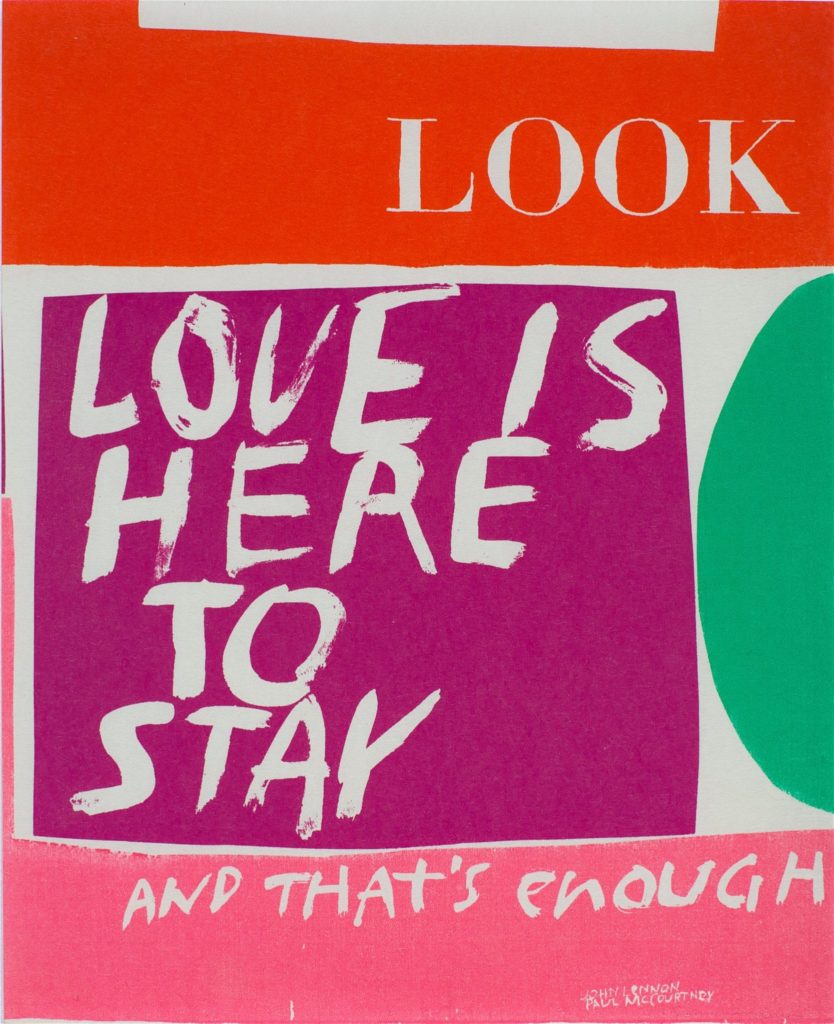































































































DailyArt Magazine needs your support. Every contribution, however big or small, is very valuable for our future. Thanks to it, we will be able to sustain and grow the Magazine. Thank you for your help!